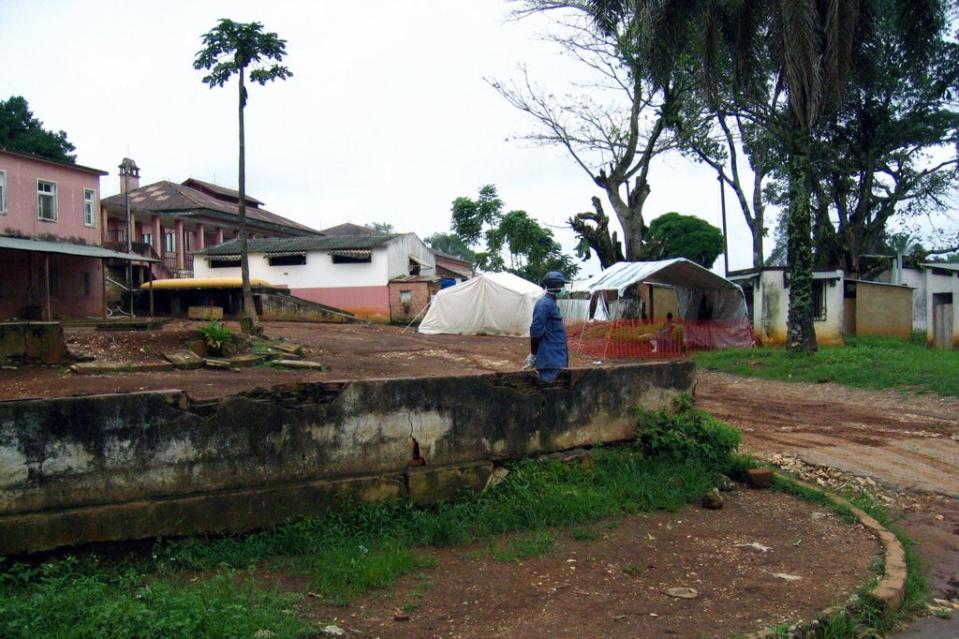Marburg virus: Man who died in Guinea found to have Ebola-like disease

The deadly Marburg virus has been found for the first time in West Africa where a man has died from the disease.
Four people were identified as high-risk contacts of the man who died in Guinea, the World Health Organization (WHO) said on Tuesday,
Marburg virus, which belongs to the same family as Ebola, is transmitted to humans from fruit bats and then spreads via bodily fluids.
Staffers have been deployed in Guinea to help authorities prevent an outbreak after the first case was identified on Monday.
It emerged in Gueckedou, near Guinea’s borders with Sierra Leone and Liberia, a region hit by an Ebola outbreak between 2014 and 2016 which killed at least 11,325 people.
Authorities were working to trace contacts of the infected man who had visited a health facility before he died.
Four people were tested for Marburg and officials were awaiting the results.
WHO spokesperson Fadela Chaib said: “At least four people he came in contact with are asymptomatic. So they did not show the disease.
The first ever case of #Marburg virus in West Africa has been confirmed in #Guinea.
We applaud the alertness & the quick investigative action by Guinea’s health workers. The potential for the Marburg virus to spread far & wide means we need to stop it in its tracks. https://t.co/5IOr0MYDwf— Dr Matshidiso Moeti (@MoetiTshidi) August 9, 2021
“But 10 WHO staff are in the community to do a tracing — contact tracing — and also to help the authorities.”
Chaib said it was “good news” WHO had already had teams in the region because they had been working on a recently-ended Ebola outbreak.
Dr Matshidiso Moeti, WHO regional director for Africa, praised efforts to investigate the virus and warned it must be stopped “in its tracks”.
“We applaud the alertness and the quick investigative action by Guinea’s health workers,” she said.
“The potential for the Marburg virus to spread far and wide means we need to stop it in its tracks. An initial team of WHO experts are already on ground.”
In addition to the four high-risk contacts, a further 146 people others could be at risk of the disease, expert Dr Krutika Kuppalli told the BBC.
What is the Marburg virus?
Cases of Marburg are extremely rare with the last outbreak occurring in Angola in 2005.
Previously outbreaks have erupted elsewhere across Africa in Angola, Congo, Kenya, South Africa and Uganda.
Marburg symptoms include high fever and muscle pains, and some patients later bleed through body openings like eyes and ears.
There is no approved drug or vaccine for Marburg but drinking water and other supportive care can improve a patient’s chances of survival.
Once a person is infected, it can spread from human to human via direct contact with the blood, secretions, organs or other bodily fluids of infected people, and with surfaces and materials such as bedding or clothing, contaminated with these fluids.
There is no proven treatment currently available for Marburg virus disease. Those available include blood products, immune and drug therapies and rehydration.
Read More
Esther Dingley death: Body found in Pyrenees by partner
JetBlue to start New York to London flights amid Covid pandemic

 Yahoo News
Yahoo News 